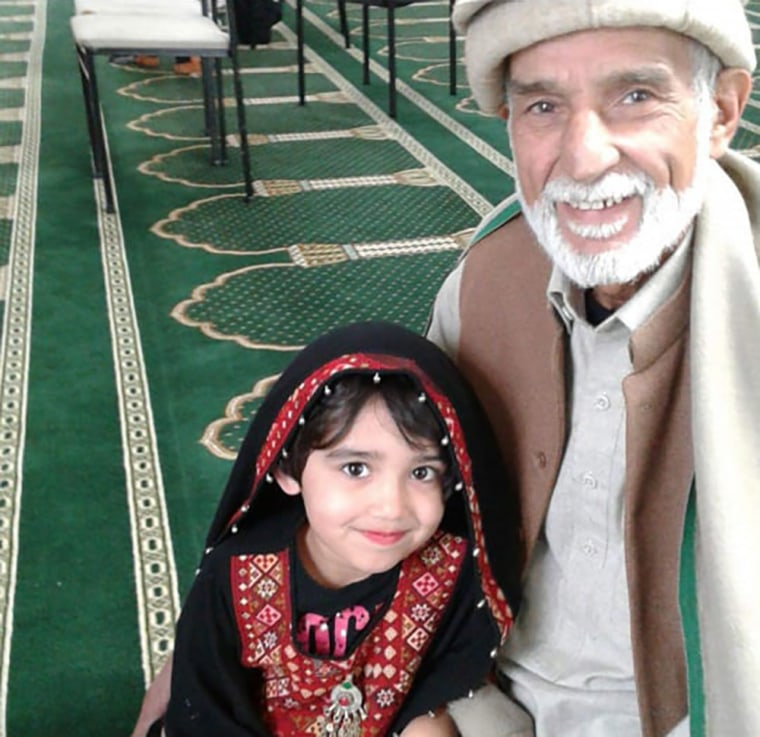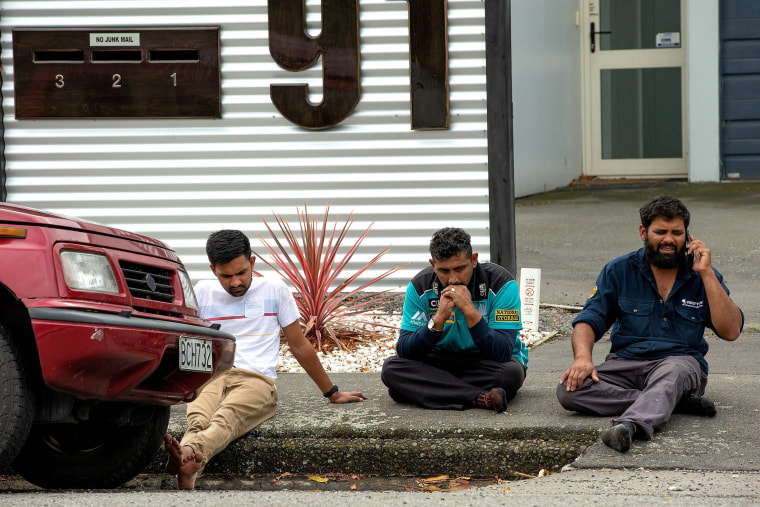Omar Nabi skipped Friday prayers because of work.
But news of the attack at the Masjid Al Noor mosque in New Zealand's Christchurch filled Nabi with fear: His devout and community-minded father had been there.
Nabi, a mechanic, rushed to the mosque as soon as he heard reports of the massacre, only to be told that his father, Daoud Nabi, 71, had thrown himself in front of another worshipper and been shot.
Fear and anxiety gripped Nabi, 43: His father's phone just kept ringing.
“If he was all right, he’d answer," he told NBC News from a local hospital.
Then in the early hours of Saturday, Nabi got the news he had most feared — his father was dead.
Daoud Nabi was among at least 49 people who were killed in the mass shooting at two mosques in the city, according to New Zealand police. Dozens more were wounded. A man in his late 20s had been charged with murder, police said.

Nabi said it made sense that his father had tried to save someone in danger.
“He’s helped everyone who’s a refugee,” he said, describing how his father went to the airport to greet refugees, and help get them started in their new lives.
"Whether you’re from Palestine, Iraq, Syria — he’s been the first person to hold his hand up," Nabi said.
His work on behalf of refugees was most likely linked to the family's experience. In the 1980s when Nabi was 6, his family emigrated from Afghanistan to New Zealand in the wake of the Soviet Union's invasion.
Daoud Nabi, an engineer, had set out to establish roots in their new home, founding a mosque and becoming the president of a local Afghan association. The family prospered and grew to include nine grandchildren.
Now Nabi hardly knows what to do with himself.
"I’m a bit lost," he said. "He is a man of lots of knowledge, and I’ve been his student for a long time."
Other families were also desperately searching for news. Janna Adnan Ezat from Christchurch posted on Facebook that she has not been able to make contact with her son who was at one of the mosques.
“I don’t know whether my son Hussein El Omari is alive or dead,” she wrote. “The roads are blocked and we families are waiting at the hospital for word.”
Ezat said that her son’s phone also rang without answer and that his car was not at home.
“I ask for your prayers,” she wrote.
According to Ezat’s Facebook profile, she is originally from Iraq.
New Zealand Prime Minister Jacinda Ardern spoke out for the migrants and refugees who appeared to be the targets of what she deemed a terrorist attack.
“They have chosen to make New Zealand their home, and it is their home. They are us,” Ardern said in a news conference earlier Friday.
"Christchurch was the home of these victims,” she added. “In fact for many, New Zealand was their choice.”
Then Ardern addressed the attacks' perpetrators: "You may have chosen us, but we utterly reject and condemn you."
From 2014 through January, a total of 4,333 refugees arrived in New Zealand, according to government statistics. They mainly came from Syria, Myanmar and Afghanistan. In addition, 1,836 people claimed asylum in the country over the same period. New Zealand has a population of around 4.9 million.
